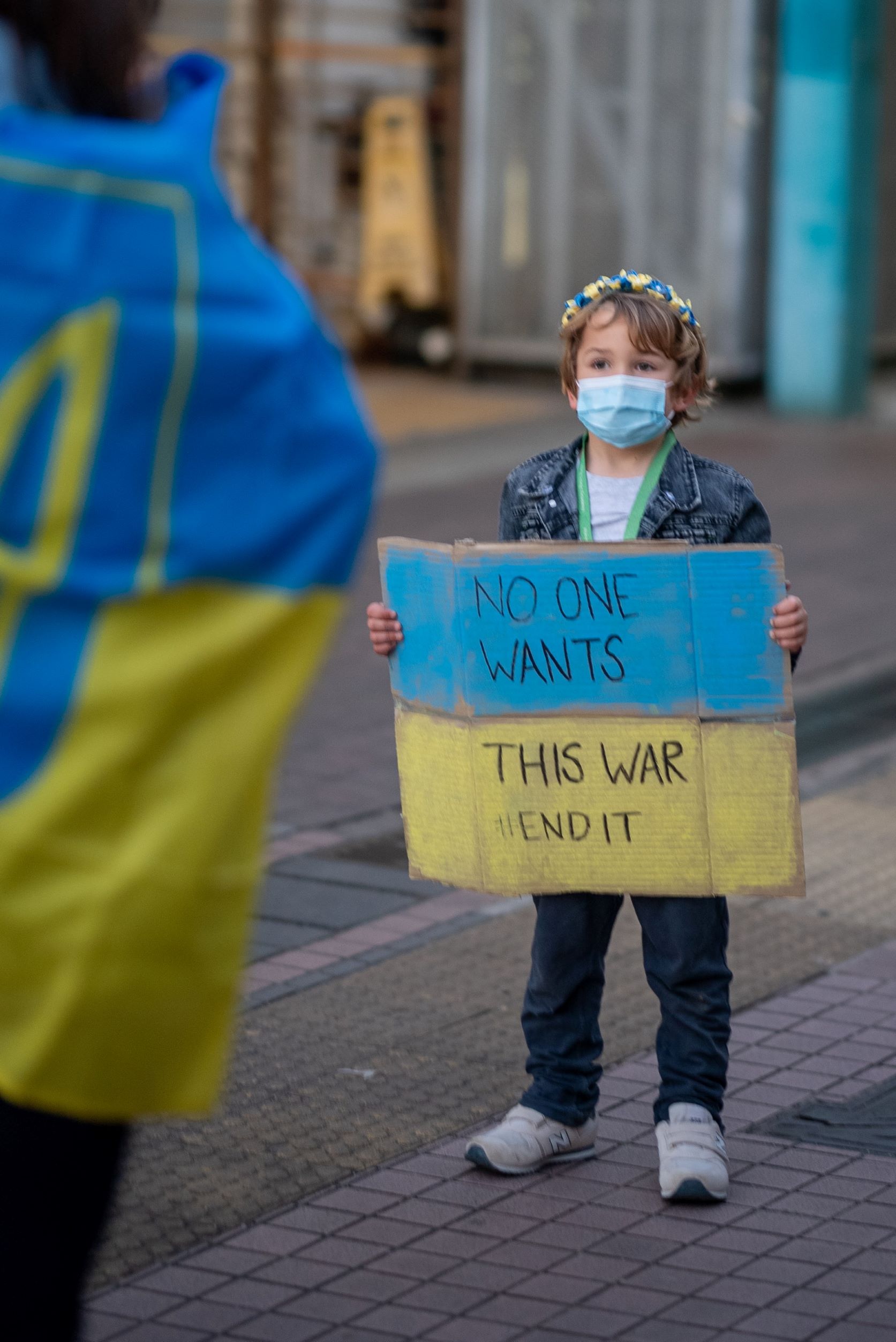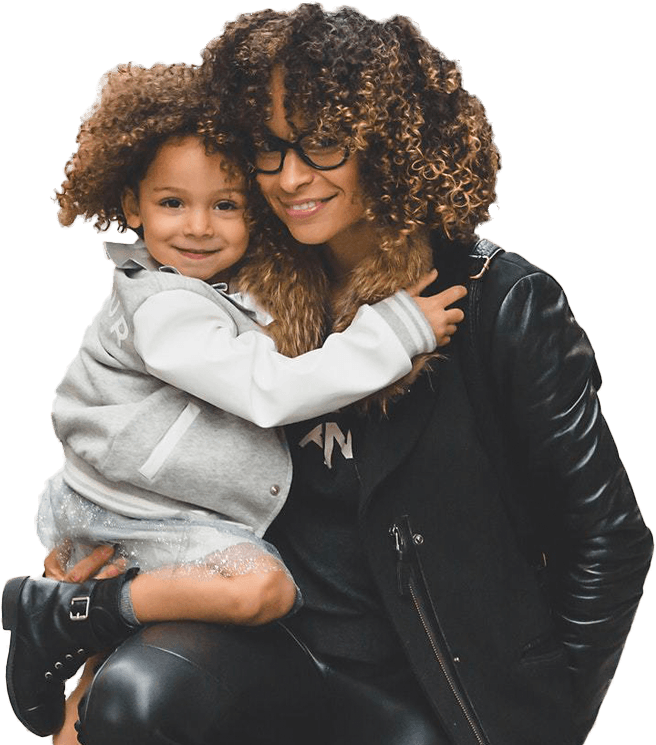Our Children Have Questions
A few days ago, my son peppered me with questions – “Mom, what’s happening? Are we going to have World War III? Is Russia going to bomb us? Are we safe?” He was obviously concerned about Russia’s invasion of Ukraine and rightfully so.
Kids at school have been talking, whispering their fears to their friends. Violent images of the war flood the media. Radio stations cover the tragic events. We cannot shield our children from life’s perils despite our best efforts. So, how do we discuss such sensitive topics with our children?

TEN tips for talking to your children about war and violence
- Create time to talk – No stuffing our emotions here. We need to make it easy for our children to share their feelings and their fears by checking in intentionally and frequently.
- Get close, remove distractions, maintain good eye contact, and listen to understand rather than to respond.
- These measures teach our children two important truths – what they say and how they feel matters to us irrespective of how big and how complicated their emotions may be.
- Also, let children express their feelings in their own way. They may want to draw pictures or use play rather than their words.
- Help our children feel safe – There is so much sadness and horror around the world, and days are filled with uncertainty and confusion.
- What matters most is the safety and emotional well-being of our children. Use physical touch to provide extra security – extra hugs, more snuggling and cuddling, or simply sitting close to each other.
- Limit exposure violent and upsetting images seen on the news and other media outlets.
- Remind them of all the powerful things that your family can do to show compassion to others like praying for those who are hurting, donating money to humanitarian efforts, or writing letters to leadership to advocate for those affected by the war.
- Manage your own emotional response – As parents, we set the tone and atmosphere in our home. Our children respond to the chaos or peace we create.
- If we are harried and tense, our children become harried and tense.
- If we are calm and reassuring, then we empower our children to reflect the same.
- If we find it difficult to quell our unease, then we need to intentionally adopt strategies to bolster our own abilities to cope with the stressors we are facing. Don’t use your children as a vent buddy. Call your friends or schedule your own therapy appointment. We cannot adequately care for our children if we are not taking care ourselves.
- Listen to your child and acknowledge their fears – Shakespeare’s oft-quoted statement from A Midsummer Night’s Dream, “And though she be but little, she is fierce” fits. Although your children are little, their emotions are very real and often fierce.
- Ranging from anger, sadness, and frustration to fear and worry, sometimes they hurl their feelings at us like fiery darts or cling to us for comfort.
- Don’t lecture or shame them for those big feelings.
- No dismissive comments like, “Oh, don’t worry about that. The war is on the other side of the world.” or “Everything is going to be okay.”
- No matter what, with whatever it is they bring, let the message always be, “I hear you, I see you, and I understand how difficult all of this right now.”
- Don’t force conversation – Sometimes our children aren’t ready to talk. They don’t want to ask questions. Give them the space to play, spend time with their friends, and just be kids.
- Be honest but don’t overshare – It’s important to answer our children’s questions openly honestly. Lack of honesty may erode their trust. However, we also need to keep it simple and use developmentally appropriate language that considers their age and level of understanding. Too many details may cause more harm than good.
- Maintain the 3 Rs: routine, relaxation, and rest – Children need structure, consistency, and predictability, especially during such volatile times.
- Routine – Attempt to keep regular mealtimes and bedtimes as consistent as possible.
- Relaxation – Continue to make time for relaxation. Children still need to play. Play is restorative and encourages imagination and creativity. Children also work through conflicts using play.
- Rest – Sleep is critically important. Children need adequate sleep – 11 to 14 hours for toddlers, 10 to 13 hours for preschoolers, 9 to 12 hours for elementary and middle schoolers, and 8 to 10 hours for teens. Lack of sleep is problematic, leading to grumpy, irritable children who struggle to concentrate and focus at school and who are at greater risk of anxiety and depression. Make sleep a priority. Help your children incorporate healthy sleep habits like regular bedtime, electronic-free bedrooms, and a highly winddown routine.
- Practice healthy coping skills – Children cope differently than adults, but they still need help learning and using coping skills.
- While your little one might want to play instead of venting to a friend or journaling, those actions may be exactly what your teenager needs.
- Breathing exercises can also help children relax. Deep belly breaths can calm anxious minds and racing hearts. Have younger children place a stuffed animal on their belly and watch the stuffed animal rise and fall as they breathe in and out. Older kids can inhale and exhale slowly while counting to three.
- Progressive muscle relaxation reduces physical tension in the body as well.
- Don’t be afraid to say, “I don’t know” – Parents don’t know everything. We just don’t, and that’s okay. It’s equally okay to make our children aware of the limits of our knowledge. Don’t be afraid to say, “I don’t know” to those tough questions that lack clear answers. It’s often hard to make sense of war and violence, to witness such devastation and suffering. Instead, teach your children compassion, the fight for freedom, and the value of every life even when those lives are different from our own.
- Watch for signs of trauma and emotional distress – Children with a history trauma or loss are at greater risk of experiencing emotional distress.
- Persistent trouble falling or staying asleep
- Ongoing irritability, mood swings, anger, or sadness
- Trouble concentrating, declining grades
- Isolation, social withdrawal
- If you see any of these symptoms, call your child’s physician for a referral to a therapist or a child, adolescent, and adult psychiatrist, contact your insurance company for a list of covered mental health providers, or ask a friend or family member for suggestions.

